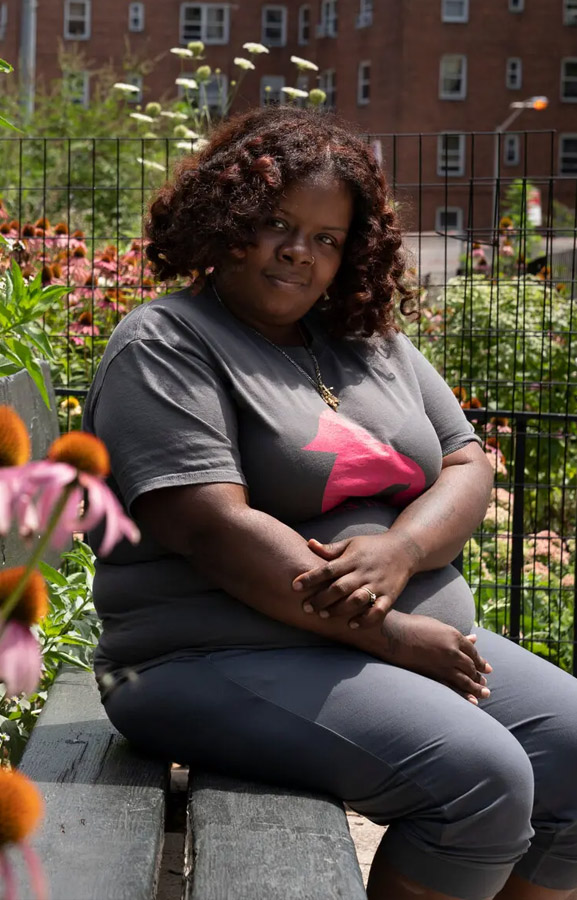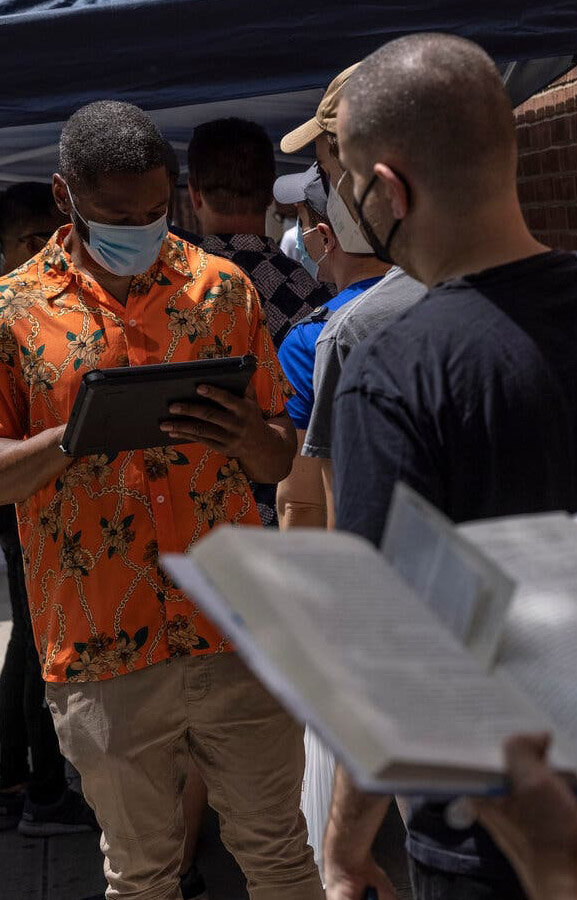Dustin T. Duncan
Media
Dr. Dustin Duncan is a world-renowned expert source for media. If you are a member of the media and would like to interview Dr. Duncan or have him author a contributed article or opinion editorial, and for all media assets, contact:
Beth LaBreche
beth@labreche.com
612-578-2834
Monkeypox safety measures will be put to the test at New Orleans’ Labor Day festival
BY PHILIP KIEFER
POSTED ON AUG 30, 2022
BY JOSEPH GOLDSTEIN
POSTED ON AUG 12, 2021
Disease and Racial Injustice Put Public Health Goals at Odds in NYC
BY AMANDA OTTAWAY
POSTED ON JUN 1, 2020
BY ELIZABETH KIM
POSTED ON NOV 13, 2020
Monkeypox safety measures will be put to the test at New Orleans’ Labor Day festival
BY PHILIP KIEFER
POSTED ON AUG 30, 2022
BY TÉA KVETENADZE
POSTED ON AUG 6, 2021
BY KELLY SERVICK
POSTED ON AUG 30, 2022
Lawmakers call on NYCHA to fix its ventilation issues
BY AMANDA LUZ HENNING SANTIAGO
POSTED ON NOV 3, 2020
‘In Survival Mode’: The Pandemic Is Devastating the Black LGBTQ Community
BY NICO LANG
POSTED ON MAY 25, 2020
Award-Winning Leader & Philanthropist
Dr. Duncan is an award-winning leader who has received scientific contribution, mentoring and leadership awards including from the National Academy of Medicine (NAM), the Harvard University T.H. Chan School of Public Health (HSPH) and the Interdisciplinary Association for Population Health Science (IAPHS). In 2020, he proudly received the Mentor of the Year Award from Columbia University Irving Medical Center’s Irving Institute for Clinical and Translational Research.
Dustin T. Duncan, ScD is also Founder of the Dustin Duncan Research Foundation. Dr. Duncan’s work appears in leading public health, epidemiology, medical, geography, criminology, demography, and psychology journals. Working in collaboration with scholars across the world, he has over 200 high-impact articles (>120 first or senior-authored), book chapters and books cited over 8,750 times; his research has appeared in major media outlets including U.S. News & World Report, The Washington Post, The New York Times and CNN. Dr. Duncan’s work has been funded by the National Institutes of Health, the Centers for Disease Control and Prevention, the HIV Prevention Trials Network, the Robert Wood Johnson Foundation, the Verizon Foundation, and the Aetna Foundation.
What reviewers are saying about the research and editorial works of Dr. Duncan
"The COVID-19 pandemic showed, yet again, that the consequences of pandemics emerge from far more than the pathogen itself. They emerge from the social conditions that set the stage for who becomes sick, who lives, and who dies. This book offers a comprehensive account of the social forces that created the COVID-19 pandemic and points to lessons we would be wise to learn if we are to mitigate the next pandemic."
~ Sandro Galea, MD, DrPH, Dean and Robert A. Knox Professor, School of Public Health, Boston University
"The methodological insights and specific research findings displayed here signal an important advance in epidemiology. This book summarizes much of the recent progress that has been made in studies that use aggregate or area-wide measurements. Overall, this book has much to offer. The authors themselves are clearly aware of the complexities, unsolved problems, and numerous challenges that confront anyone who wants to assess quantitatively the impact of social and geographic units on health." --American Journal of Epidemiology "Advances the debate over the theory and methodology of the study of neighborhoods and health to the center stage of epidemiology, public health, and health policy."
~ JAMA
"The distribution and control of disease in human populations has always been profoundly and inextricably social. As these authors skillfully and exhaustively demonstrate, the COVID-19 pandemic serves as a paradigmatic case study of the social determinants of exposure, infection, and disease. Race, gender, class, and power all play starring roles in this terrible saga, along with work, housing, policing and trust. This book provides a comprehensive account of how to understand mass disease in terms of a society out of joint."
~ Jay S. Kaufman, PhD, Professor, School of Population and Global Health, McGill University










